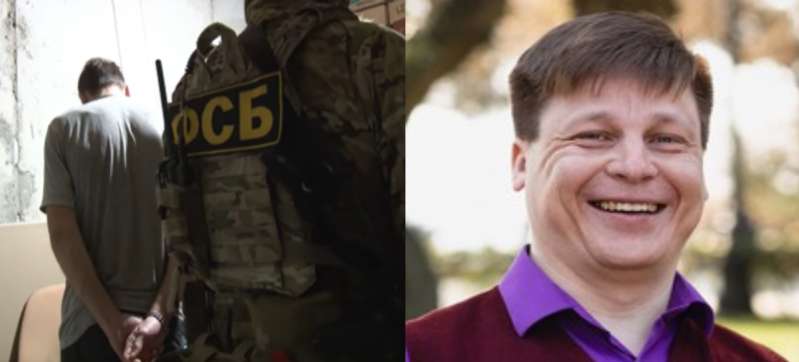• Topics / Human Rights Abuses in Russian-occupied Crimea
Jehovah’s Witness faces 6.5 year prison sentence for religious services in Russian-occupied Crimea

A Russian prosecutor has demanded a six and a half year sentence against Artem Gerasimov, a Jehovah’s Witness from Yalta in occupied Crimea. This is the first trial of a Jehovah’s Witness for his faith in occupied Crimea, and Russia is not only breaching its own constitution through such flagrant religious persecution, but also the Geneva Convention and other international law. As an occupying regime, Russia is prohibited from imposing its legislation on Crimea, and Ukraine does not ban the Jehovah’s Witnesses or any other faith.
In reverting to Soviet (and Nazi) persecution of the Jehovah’s Witnesses, Russia’s Supreme Court on 20 April 2017 banned this world faith as ‘extremist’. Since then several people have received long prison sentences and hundreds have faced criminal prosecution for their faith, with the standard charge being under Article 282.2 of Russia’s criminal code (‘involvement in the activities of an extremist organization’).
35-year-old Gerasimov is charged with the more serious part 1 of this norm (‘’organizing such supposedly ‘extremist’ activities), with such ‘organizing’ reflected, or so the prosecution claims, in the fact that he held religious services. It was during the ‘debate’ on 10 February, that prosecutor Oksana Chuchuyeva demanded a 6.5 year sentence in a medium security prison colony, as well as one year restricted liberty and a three-year ban on carrying out certain activities. Apparently the prosecutor did not specify which activities were meant. Since Russia is effectively treating worshipping together, reading the Bible and sharing one’s faith with others as ‘extremist activity’, the scope for repressive measures is broad.
Gerasimov was arrested on 20 March 2019 in the second of three major armed ‘operations’ against Jehovah’s Witnesses in occupied Crimea. Although the trial now underway appears to be only of Gerasimov, and he was the only person who was shown being arrested, several others were taken away for interrogation. The JW site mentions two men facing essentially the same charges – Gerasimov and 40-year-old Taras Kuzio.
Russian state-controlled media claimed that “the FSB have broken up a Jehovah’s Witness cell”. A video showed burly men in masks and military gear making their way into what is presumably Gerasimov’s home and demonstrating religious material, including the Bible, as though it were ‘evidence’. Any forms of dehumanizing language and images are for a purpose, and here talking about ‘cells’ being broken, and showing a man with his hands bound behind his back serve to ensure that people do not ask legitimate questions about the need for any armed search or for handcuffs where a believer is being arrested for practising his entirely peaceful faith, one that prohibits the use of any weapons.
Four Crimean Ukrainians are known to be facing criminal prosecution in occupied Crimea: Serhiy Filatov was arrested during the first huge operation on 15-16 November 2018 in which up to 30 homes were subjected to armed searches. Gerasimov and Kuzio were charged after the second search, and one man, Viktor Stashevsky, was named as having been arrested after the searches during the night from 4-5 June 2019. All of the men have, without any ‘conviction’, been placed on Russia’s notorious ‘List of Extremists and Terrorists”, a list which the Council of Europe appears to be endorsing, despite the huge number of political prisoners and prisoners of conscience which it contains. Inclusion on the list leads to financial and other restrictions, meaning that whole families suffer.
Russia has destroyed the independent media in occupied Crimea, and is persecuting civic activists and journalists reporting on cases of political and religious persecution, making it very hard to follow such trials in any detail. The next hearing, with continuation of the debate is scheduled for 20 February.





